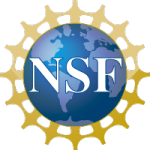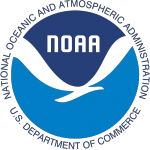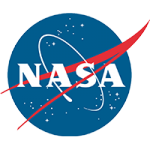The 2010 OCB Summer Science Workshop was held July 19-22, 2010 at the Scripps Institution of Oceanography in La Jolla, CA.
This Workshop highlighted three interdisciplinary science themes: Arctic, low oxygen regions, and benthic-pelagic coupling. Within these themes, we were especially keen to address nitrogen cycling, ecological tipping points, and strengthened connections between experimentalists and modelers.
Arctic
The Arctic is undergoing rapid changes in response to warming, accelerated melting of large ice sheets, and reductions in seasonal sea ice cover. This session will explore implications of these changes for marine ecosystems (e.g., primary production, food webs) and associated physical (e.g., salinity, stratification, deep ocean circulation, etc.) and biogeochemical (nutrient cycling, carbon fluxes, carbonate saturation state, etc.) processes.
Low Oxygen Regions
Many models are predicting a significant expansion of oxygen minimum zones under the IPCC “business-as-usual” scenario for anthropogenic CO2 emissions, which will affect marine productivity, carbon and nutrient cycling, and food webs. This session will highlight new observations and applications of biogeochemical and ecological tools and approaches to study processes within different low oxygen systems.
Benthic-Pelagic Coupling
Benthic and pelagic ecosystems are intimately linked by way of biogeochemical cycling and transformation. Benthic-pelagic coupling along continental shelves represents a significant unknown in coastal carbon budgets, and the physical, chemical, and biological processes driving organic carbon export and burial in the open ocean remain poorly characterized. This session will focus on new observations and tools to explore benthic-pelagic processes.
2. Agenda
Monday July 19, 2010
8:30 Introductory remarks and announcements (Scott Doney, Woods Hole Oceanographic Institution) (Recording: Quicktime, webm, RealPlayer)
8:45 Agency updates and community questions and discussion
- National Science Foundation (NSF) (Dave Garrison, Don Rice) (Recording: Quicktime, wmv, RealPlayer)
- National Science Foundation (NSF) (Phil Taylor) (Recording: Quicktime, wmv, RealPlayer)
- National Aeronautics and Space Administration (NASA) (Paula Bontempi) (Recording: Quicktime, wmv, RealPlayer)
- National Oceanic and Atmospheric Administration (NOAA) (Chris Sabine) (Slides, Recording: Quicktime, wmv, RealPlayer)
Plenary Session 1. The Arctic
Chairs: Walker Smith (Virginia Institute of Marine Science), Jeremy Mathis (University of Alaska, Fairbanks)
9:45 Recent changes in sea surface pCO2 in the western Arctic Ocean: The consequence of
sea ice melt (Wei‐Jun Cai, University of Georgia) (Slides; Recording: Quicktime, wmv, RealPlayer)
11:00 Aragonite undersaturation in the western Arctic Ocean (Michiyo Yamamoto‐Kawai,
Fisheries and Oceans Canada) (Slides; Recording: Quicktime, wmv, RealPlayer)
11:45 Seasonal changes in primary production, phytoplankton community composition, and export during the Bering Sea Ecosystem Study (Bradley Moran, University of Rhode Island) (Slides; Recording: Quicktime, wmv, RealPlayer)
14:00 Evidence of systemic seasonal aragonite undersaturation in the continental shelf seas of Alaska (Jeremy Mathis, University of Alaska, Fairbanks)
14:45 Arctic plenary questions and community discussion (Recording: Quicktime, wmv, RealPlayer)
15:30 U.S. Carbon Cycle Science Plan update (Chris Sabine, NOAA Pacific Marine Environmental Laboratory) (Slides; Recording: Quicktime, wmv, RealPlayer)
16:00 Student introductions: Brendan Rae Carter (Scripps Institution of Oceanography) (Recording: Quicktime, wmv, RealPlayer)
- John Radich (Scripps Institution of Oceanography) (Recording: Quicktime, wmv, RealPlayer)
- Hugh Doyle (Scripps Institution of Oceanography) (Recording: Quicktime, wmv, RealPlayer)
Tuesday July 20, 2010
8:30 Natural coastal carbon sinks: Highlights of the IUCN report and community discussion of OCB’s existing and potential roles in natural coastal ecosystems research (Chuck Hopkinson, University of Georgia) (Slides; Recording: Quicktime, wmv, RealPlayer)
Plenary Session 2. Low Oxygen Regions
Chairs: Kendra Daly (University of South Florida), Lisa Levin (Scripps Institution of Oceanography)
9:15 The specter of expanding OMZs:
- Part 1. Habitat compression and the biological pump (Kendra Daly, University of South Florida) (Slides; Recording: Quicktime, wmv, RealPlayer)
- Part 2. Benthic and breathless in the Indo‐Pacific (Lisa Levin, Scripps Institution of Oceanography) (Slides; Recording: Quicktime, wmv, RealPlayer)
10:30 Eutrophication, coastal hypoxia, carbon, and climate (Nancy Rabalais, Louisiana Universities Marine Consortium) (Slides; Recording: Quicktime, wmv, RealPlayer)
11:15 The evolving story of microbial nitrogen cycling processes in low oxygen zones (Jonathan Zehr, University of California, Santa Cruz) (Slides; Recording: Quicktime, wmv, RealPlayer)
13:30 Modeling low‐oxygen regions (Andreas Schmittner, Oregon State University) (Slides; Recording: Quicktime, wmv, RealPlayer)
14:15 Low‐oxygen plenary questions and community discussion (Recording: Quicktime, wmv, RealPlayer)
15:00 NACP/OCB Coastal Synthesis Activities: Regional updates (Paula Coble, University of South Florida)
- Kendra Daly, Oxygen Minimum Zone (Recording: Quicktime, wmv, RealPlayer)
- Paula Coble, Coastal Synthesis (Slides; Recording: Quicktime, wmv, RealPlayer)
- Galen McKinley, Great Lakes; Jeremy Mathis, Arctic (Recording: Quicktime, wmv, RealPlayer)
16:00 Student introductions: Emily Bockmon (Scripps Institution of Oceanography), Jordan Landers (Columbia University), Ernesto Molina (University of Tasmania), Jason Waters (University of Miami) (Recording: Quicktime, wmv, RealPlayer)
Wednesday July 21, 2010
8:30 Synopsis and community discussion of NSF sponsored Ocean Global Change and Evolution workshop (David Hutchins, University of Southern California) (Slides; Recording: Quicktime, wmv, RealPlayer)
Plenary Session 3. Benthic Pelagic Interactions
Chairs: Henry Ruhl (National Oceanography Centre), Cynthia Pilskaln (University of Massachusetts, Dartmouth)
9:45 Molecular approaches to marine microbial ecology and biogeochemical cycling of nitrogen and carbon (Amal Jayakumar, Princeton University) (Slides; Recording: Quicktime, wmv, RealPlayer)
11:00 Benthic‐pelagic coupling on the Oregon shelf during summer hypoxia: Insights from eddy correlation measurements (Clare Reimers, Oregon State University) (Slides; Recording: Quicktime, wmv, RealPlayer)
11:45 A look on the brown side of life: Understanding biogeochemical cycling in marine benthic food webs using inverse modeling and stable isotope labeling (Dick van Oevelen, Nederlands Instituut voor Ecologie) (Recording: Quicktime, wmv, RealPlayer)
14:00 Benthic nepheloid layer dynamics and potential role in carbon cycling on the continental margin (Cynthia Pilskaln, University of Massachusetts, Dartmouth) (Slides; Recording: Quicktime, wmv, RealPlayer)
14:45 Benthic‐pelagic plenary questions and community discussion (Recording: Quicktime, wmv, RealPlayer)
15:30 Gulf of Mexico oil spill update (Steve Lohrenz, University of Southern Mississippi) (Slides; Recording: Quicktime, wmv, RealPlayer)
16:00 Student introductions: Iuri Herzfeld (University of Hawaii), Samantha Siedlecki
(University of Chicago), Ryan Woosley (University of Miami) (Recording: Quicktime, wmv, RealPlayer)
Thursday July 22, 2010
8:30 OCB Partner Program Updates (10 minutes each)
- Integrated Marine Biogeochemistry and Ecosystem Research (IMBER) (Raleigh Hood, University of Maryland) Slides
- North American Carbon Program (NACP) (Peter Griffith, NASA)
- GEOTRACES (Bob Anderson, Lamont‐Doherty Earth Observatory) Slides
- International Ocean Carbon Coordination Project (IOCCP) (Kathy Tedesco,
United Nations Educational, Scientific and Cultural Organization) Slides - Surface Ocean Lower Atmosphere Study (SOLAS) (Francisco Chavez, Monterey
Bay Aquarium Research Institute) Slides - U.S. Climate Variability and Predictability (CLIVAR) (David Legler, U.S. CLIVAR Office) (Slides; Recording: Quicktime, wmv, RealPlayer)
9:30 OCB community questions and discussion on cross program linkages (Recording: Quicktime, wmv, RealPlayer)
10:45 Synopsis of the Asilomar International Conference on Climate Intervention Technologies (http://www.climateresponsefund.org/) and OCB community discussion (Francisco Chavez, Monterey Bay Aquarium Research Institute) (Slides; Recording: Quicktime, wmv, RealPlayer)
11:45 Closing remarks and wrap-up (Scott Doney, Woods Hole Oceanographic Institution) (Recording: Quicktime, wmv, RealPlayer)
3. Poster Information
2010 OCB Workshop Poster Abstracts
4. Participant Information
2010 OCB Workshop Participant List
2010 OCB Workshop Registrant List
5. Related Literature
Low Oxygen Regions
Helly, J.J., and L.A. Levi (2004). Global distribution of naturally occurring marine hypoxia on continental margins. Deep-Sea Research I, 51: 1159–1168.
Keeling, R.F., A. Kortzinger, and N. Gruber (2010). Ocean Deoxygenation in a Warming World. Ann. Rev. Mar. Sci., 2: 199–229.
Paulmier, A., D. Ruiz-Pino (2009). Oxygen minimum zones (OMZs) in the modern ocean. Progress in Oceanography, 80: 113–128.
Rabalais, N.N., R.E. Turner, R.J. Dýaz, and D. Justic, D. 2009. Global change and eutrophication of coastal waters. ICES Journal of Marine Science, 66: 1528–1537.
Stramma, L., G.C. Johnson, J. Sprintall, V. Mohrholz (2008). Expanding Oxygen-Minimum Zones in the Tropical Oceans. Science, 320, 655–658, DOI.10.1126/science.1153847.
Natural Coastal Carbon Sinks
Laffoley, D.d’A. & Grimsditch, G. (eds). 2009. The management of natural coastal carbon sinks. IUCN, Gland, Switzerland. 53 pp.
2010 Workshop Sponsors






